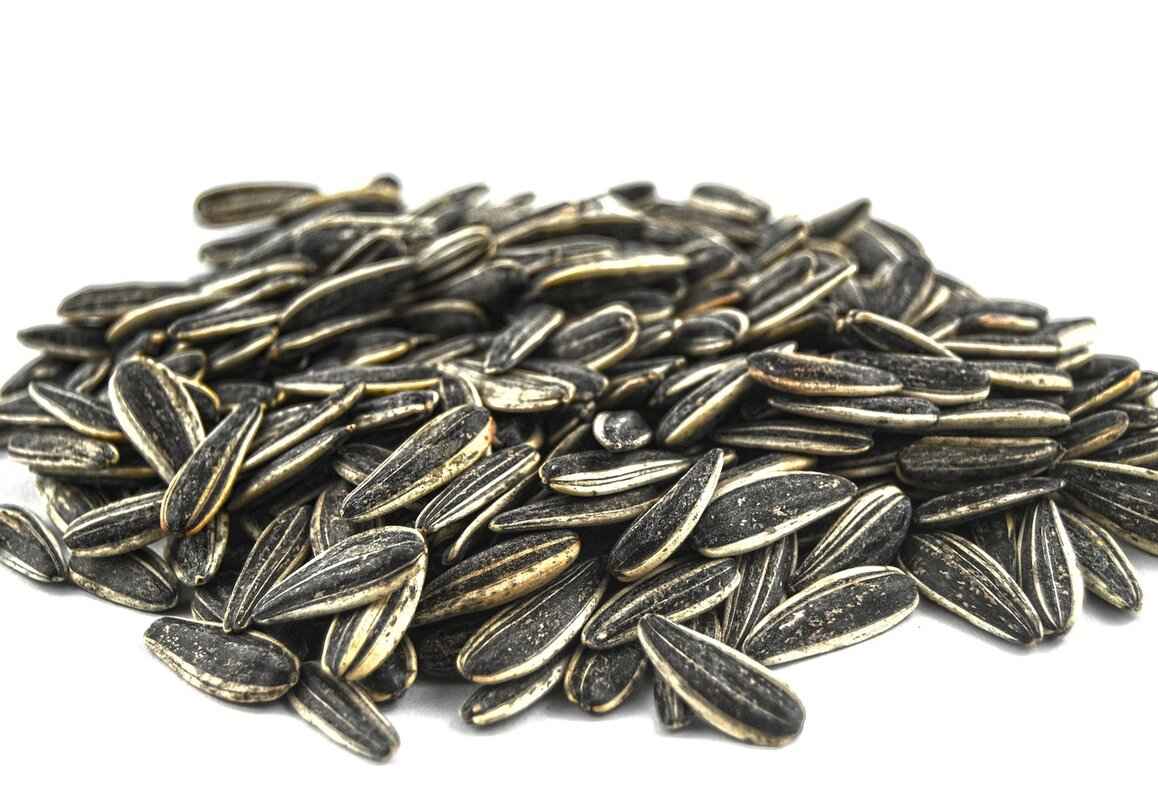Chia seeds and flax seeds are two of the most popular superfoods today, each offering a range of nutritional benefits and culinary versatility. This article delves into their unique properties, helping you decide which seed to incorporate into your diet.
Chia seeds are small, nutrient-dense seeds from the Salvia hispanica plant. These tiny black or white seeds are rich in omega-3 fatty acids, fiber, and antioxidants. Their ability to absorb liquid and form a gel-like consistency makes them a popular ingredient in various recipes, from smoothies to puddings.
Flax seeds come from the Linum usitatissimum plant and are known for their high content of alpha-linolenic acid (ALA), a type of omega-3 fatty acid. In addition to omega-3s, flax seeds are packed with lignans and fiber, which contribute to their numerous health benefits.
When comparing chia and flax seeds, it’s essential to understand their nutritional differences. Both seeds are excellent sources of fiber, protein, and essential fatty acids, but they vary in specific nutrients:
- Chia Seeds: Higher in soluble fiber, calcium, and antioxidants.
- Flax Seeds: Richer in omega-3 fatty acids and lignans.
Fiber is crucial for maintaining digestive health. Chia seeds are predominantly composed of soluble fiber, which helps regulate blood sugar levels and promotes a feeling of fullness. On the other hand, flax seeds contain both soluble and insoluble fiber, aiding in digestive health and regularity.
Omega-3 fatty acids are essential for heart health. Flax seeds are particularly high in ALA, while chia seeds also provide a good source, albeit in slightly lower amounts. Incorporating either seed into your diet can help promote cardiovascular health.
Chia seeds are celebrated for their numerous health benefits, including:
- Improved Digestion: The high fiber content aids in digestion and promotes gut health.
- Heart Health: Rich in omega-3s, chia seeds can help lower cholesterol and reduce inflammation.
- Weight Management: Their ability to absorb liquid makes them an excellent addition to weight loss diets, as they promote satiety.
Flax seeds also offer a variety of health advantages, such as:
- Anti-Inflammatory Properties: The omega-3 fatty acids in flax seeds help reduce inflammation in the body.
- Cholesterol Management: Regular consumption can improve cholesterol levels and support heart health.
- Skin Health: The lignans and omega-3s contribute to healthier skin and may reduce the risk of skin-related issues.
Chia seeds are incredibly versatile. They can be added to:
- Smoothies for a nutritional boost.
- Yogurts or oatmeal for added texture.
- Baked goods, enhancing nutrient content.
Chia pudding, made by soaking seeds in milk or a milk alternative, is a popular and nutritious snack.
To maximize the benefits of flax seeds, consider the following:
- Consume them ground for better nutrient absorption.
- Add to oatmeal, smoothies, or baked goods.
- Use as an egg substitute in vegan recipes by mixing ground flax with water.
While both chia and flax seeds are generally safe for most people, consuming them in large quantities can lead to digestive issues. It’s advisable to introduce them gradually into your diet to avoid discomfort.

What Are Chia Seeds?
Chia seeds, derived from the Salvia hispanica plant, are tiny, nutrient-dense seeds that have captured the attention of health enthusiasts and culinary experts alike. These seeds come in two primary colors: black and white, and they are celebrated for their impressive nutritional profile and versatility in various dishes. With their rise in popularity, many people are eager to understand the full range of benefits that chia seeds can offer.
Chia seeds are often hailed as a superfood due to their high content of essential nutrients. They are an excellent source of omega-3 fatty acids, particularly alpha-linolenic acid (ALA), which is important for heart health. Additionally, these seeds are packed with fiber, offering about 11 grams per ounce, which promotes digestive health and helps maintain a feeling of fullness.
The versatility of chia seeds in the kitchen is one of their most appealing aspects. They can be easily incorporated into a variety of dishes, making them an ideal ingredient for health-conscious individuals. Here are some popular ways to use chia seeds:
- Add them to smoothies for an extra nutritional boost.
- Mix them into yogurt or oatmeal for added texture and health benefits.
- Create chia pudding by soaking them in milk or a dairy-free alternative; this makes for a delicious and nutritious snack.
- Incorporate them into baked goods like muffins and bread for enhanced nutrition.
Chia seeds offer a variety of health benefits that make them a valuable addition to any diet. Some of the most notable benefits include:
- Improved Digestion: Thanks to their high fiber content, chia seeds can help promote regular bowel movements and support overall digestive health.
- Heart Health: The omega-3 fatty acids found in chia seeds contribute to reduced inflammation and improved cholesterol levels.
- Weight Management: The combination of fiber and protein in chia seeds can help control appetite, making it easier to manage weight.
- Antioxidant Properties: Chia seeds are rich in antioxidants, which help combat oxidative stress and may lower the risk of chronic diseases.
To ensure that chia seeds maintain their freshness and nutritional value, it is essential to store them properly. Keep chia seeds in an airtight container, preferably in a cool, dark place. They can also be refrigerated to extend their shelf life.
While chia seeds are generally safe for most people, consuming them in excess may lead to digestive discomfort, such as bloating or gas. It is advisable to start with small amounts and gradually increase intake to allow your body to adjust. Additionally, those with certain medical conditions should consult with a healthcare professional before incorporating chia seeds into their diet.
In summary, chia seeds are a remarkable addition to any diet, offering numerous health benefits and culinary versatility. Their rich nutritional profile makes them an ideal choice for anyone looking to enhance their overall well-being.
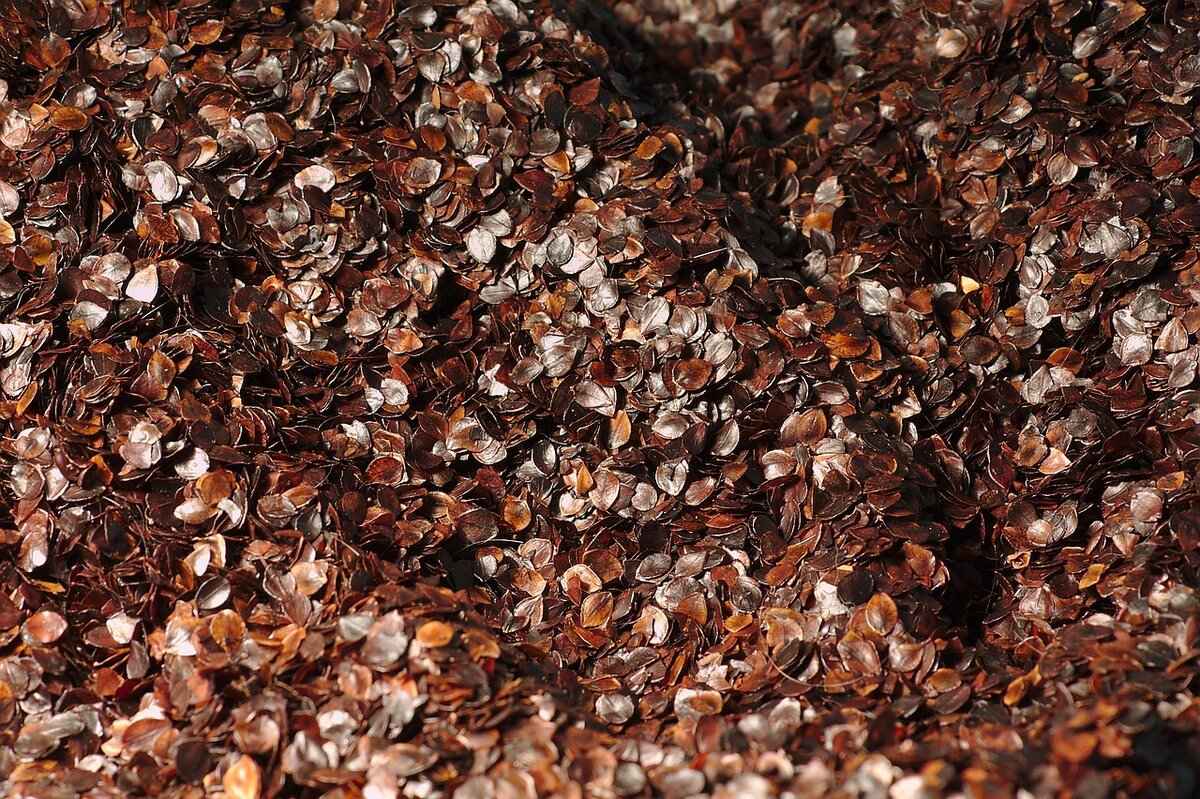
What Are Flax Seeds?
Flax seeds, derived from the flax plant (Linum usitatissimum), are tiny, nutrient-packed seeds that have gained significant attention for their numerous health benefits. These seeds are a powerhouse of essential nutrients, making them a valuable addition to any diet. Known for their rich content of omega-3 fatty acids and dietary fiber, flax seeds have been used for centuries in various culinary applications and traditional medicine.
Flax seeds are particularly celebrated for their high concentration of alpha-linolenic acid (ALA), a type of omega-3 fatty acid that is crucial for heart health. In addition to omega-3s, flax seeds are an excellent source of lignans, which are phytoestrogens known for their antioxidant properties. These compounds may help reduce inflammation and lower the risk of chronic diseases.
Incorporating flax seeds into your diet is both easy and versatile. They can be consumed whole or ground, with ground flax seeds offering better nutrient absorption. Here are some popular ways to include flax seeds in your meals:
- Smoothies: Add a tablespoon of ground flax seeds for a nutritional boost.
- Oatmeal: Stir in flax seeds for added texture and health benefits.
- Baking: Use ground flax seeds as an egg substitute in vegan recipes.
- Salads: Sprinkle whole flax seeds over salads for a crunchy topping.
The health benefits of flax seeds extend beyond their nutritional content. Regular consumption may lead to:
- Improved Heart Health: The omega-3 fatty acids in flax seeds can help reduce cholesterol levels and support cardiovascular health.
- Digestive Health: The high fiber content aids digestion and promotes regular bowel movements.
- Weight Management: Flax seeds can help with weight loss due to their ability to promote a feeling of fullness.
- Skin Health: The antioxidants in flax seeds may improve skin hydration and reduce signs of aging.
To maintain their freshness and nutritional integrity, flax seeds should be stored properly. Whole flax seeds can be kept in a cool, dry place, while ground flax seeds should be refrigerated to prevent oxidation. Always keep them in an airtight container to prolong their shelf life.
While flax seeds are generally safe for most people, consuming them in excessive amounts may lead to digestive discomfort, such as bloating or gas. It is advisable to start with small quantities and gradually increase intake to allow your body to adjust. If you have any existing health conditions or are pregnant, it’s wise to consult a healthcare professional before adding flax seeds to your diet.
In summary, flax seeds are a remarkable source of nutrients that offer a variety of health benefits. Their versatility in culinary applications and rich nutritional profile make them an excellent choice for anyone looking to enhance their diet. Whether you are seeking to improve heart health, support digestion, or simply add a nutritious element to your meals, flax seeds are a fantastic option to consider.
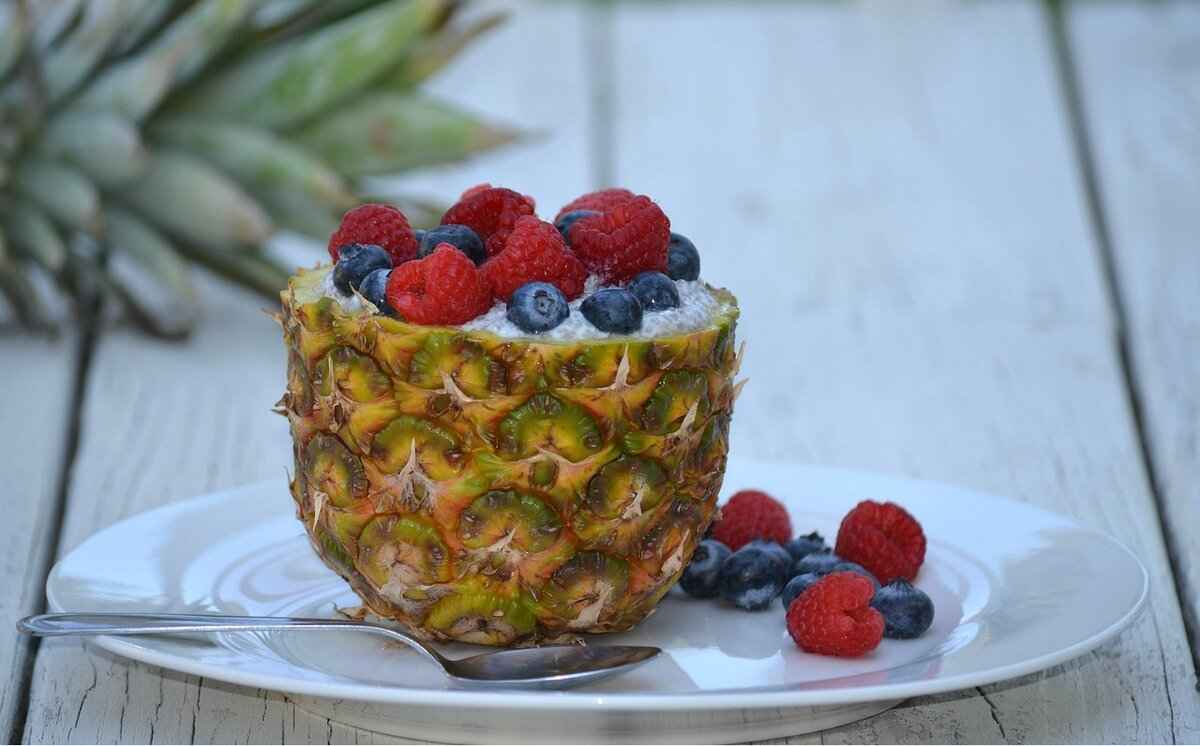
Comparative Nutritional Profiles
When it comes to enhancing your diet with nutritious seeds, understanding the nutritional differences between chia and flax seeds is crucial. Both seeds are celebrated for their unique health benefits, including high levels of fiber, protein, and essential fatty acids, yet they differ in their specific nutrient profiles. This article delves into the comparative nutritional profiles of these two superfoods, helping you make an informed choice.
Chia seeds and flax seeds are both nutrient-dense options that can significantly contribute to your overall health. However, they possess distinct qualities that cater to different dietary needs.
- Chia Seeds: These tiny seeds pack a punch with their impressive fiber content, containing approximately 10 grams of fiber per ounce. This fiber is primarily soluble, which helps to create a gel-like substance in the stomach, promoting a feeling of fullness and aiding in digestion.
- Flax Seeds: In contrast, flax seeds provide about 8 grams of fiber per ounce, consisting of both soluble and insoluble fiber. This combination supports digestive health by facilitating regular bowel movements and feeding beneficial gut bacteria.
In terms of protein, both seeds are excellent sources, but chia seeds offer a slightly higher protein content, providing around 4 grams per ounce compared to flax seeds’ 5 grams. This makes them a great option for those looking to boost their protein intake.
Another critical aspect to consider is the omega-3 fatty acid content. Flax seeds are particularly rich in alpha-linolenic acid (ALA), boasting about 6,800 milligrams per tablespoon. This makes them one of the best plant-based sources of omega-3s. Chia seeds also contain ALA, but in slightly lower amounts, around 5,000 milligrams per tablespoon.
Both seeds contribute to heart health, but flax seeds may have a slight edge due to their higher omega-3 concentration. Incorporating either seed into your diet can help reduce inflammation and support cardiovascular health.
In terms of vitamins and minerals, both chia and flax seeds are rich in essential nutrients. Chia seeds are an excellent source of calcium, providing around 18% of the daily recommended intake per ounce, which is beneficial for bone health. They also contain significant amounts of magnesium and phosphorus.
Flax seeds, on the other hand, are high in magnesium and selenium, both of which play vital roles in metabolic processes and antioxidant defense. They also contain lignans, which are phytoestrogens that may contribute to hormonal balance and have potential cancer-fighting properties.
Choosing between chia and flax seeds ultimately depends on your dietary preferences and health goals. If you are looking for a seed high in omega-3s and lignans, flax seeds may be the better option. Conversely, if you prefer a seed that expands in water and offers more soluble fiber, chia seeds could be your go-to.
Incorporating both seeds into your diet can provide a broader range of nutrients and health benefits. Consider adding them to smoothies, oatmeal, or baked goods to enhance your meals with their nutritional power.
Fiber Content: How Do They Compare?
Fiber is a crucial component of a healthy diet, playing a significant role in maintaining digestive health. It aids in regular bowel movements, helps control blood sugar levels, and may even assist in weight management. When it comes to fiber content, both chia seeds and flax seeds offer unique benefits that can enhance your overall well-being.
Fiber is classified into two main types: soluble fiber and insoluble fiber. Soluble fiber dissolves in water, forming a gel-like substance that can help lower cholesterol and stabilize blood sugar levels. On the other hand, insoluble fiber adds bulk to the stool and aids in moving food through the digestive tract. Both types are essential for optimal digestive function.
Chia seeds are particularly rich in soluble fiber, which can absorb water and expand in the stomach, promoting a feeling of fullness. This property makes chia seeds an excellent addition to weight loss diets. Just two tablespoons of chia seeds can provide about 10 grams of fiber, making them an effective way to increase your daily fiber intake.
Flax seeds, on the other hand, contain a mix of both soluble and insoluble fiber. This combination offers a broader range of digestive benefits. With approximately 8 grams of fiber per two tablespoons, flax seeds not only help with digestion but also support heart health by lowering cholesterol levels. The presence of lignans, a type of antioxidant found in flax seeds, further enhances their health benefits.
- Chia Seeds: High in soluble fiber, promoting satiety and aiding in weight management.
- Flax Seeds: A balanced source of both soluble and insoluble fiber, supporting regular bowel movements.
Both seeds can contribute to a healthy gut microbiome, which is essential for overall health. Incorporating either or both into your diet can help maintain digestive regularity and improve gut health.
Adding chia and flax seeds to your meals is simple and versatile. Here are some practical suggestions:
- Smoothies: Blend chia or flax seeds into your favorite smoothie for an added fiber boost.
- Breakfast Bowls: Sprinkle them on oatmeal or yogurt to enhance the fiber content.
- Baking: Use ground flax seeds as an egg substitute in vegan recipes or add chia seeds to muffins and breads.
As you consider your options, it’s essential to note that both chia and flax seeds can cause digestive discomfort if consumed in excess. Start with small amounts and gradually increase your intake to allow your digestive system to adjust.
In summary, both chia seeds and flax seeds offer significant fiber benefits, making them excellent additions to a balanced diet. Whether you prefer the soluble fiber of chia seeds or the balanced profile of flax seeds, incorporating these seeds can enhance your digestive health and overall well-being.
Omega-3 Fatty Acids: Which Seed Reigns Supreme?
Omega-3 fatty acids play a crucial role in maintaining heart health and supporting overall well-being. They are known to reduce inflammation, lower blood pressure, and improve cholesterol levels. Among the various sources of omega-3s, chia seeds and flax seeds stand out, each offering unique benefits and nutritional profiles. This article delves into the omega-3 content of both seeds, helping you determine which one may be the better addition to your diet.
Omega-3 fatty acids are essential fats that the body cannot produce on its own, making it necessary to obtain them through diet. The three main types are:
- Alpha-linolenic acid (ALA) – found in plant sources like chia and flax seeds.
- Eicosapentaenoic acid (EPA) – primarily found in fish and seafood.
- Docosahexaenoic acid (DHA) – also found in fish and algae.
Both ALA and the other two types of omega-3s are vital for maintaining heart health, brain function, and reducing inflammation.
Flax seeds are particularly high in alpha-linolenic acid (ALA), with about 6,000 mg of ALA per tablespoon of whole seeds. This high concentration makes flax seeds a powerful ally for heart health. Additionally, flax seeds are rich in lignans, which have antioxidant properties, further promoting cardiovascular wellness.
Chia seeds also provide a good source of ALA, containing approximately 5,000 mg per tablespoon. While slightly lower than flax seeds, chia seeds still contribute significantly to your omega-3 intake. They are also packed with fiber and protein, making them a nutritious addition to any diet.
When comparing the omega-3 content of chia and flax seeds, both seeds offer substantial benefits. However, flax seeds have a slight edge in ALA content. It is essential to consider how you plan to incorporate these seeds into your diet:
- If you’re looking for higher omega-3 intake, flax seeds might be the preferred choice.
- If you prefer a versatile ingredient that also provides a good amount of fiber, chia seeds are an excellent option.
Both chia and flax seeds offer additional health benefits beyond their omega-3 content. For instance:
- Chia seeds are rich in antioxidants, which can help combat oxidative stress and inflammation.
- Flax seeds may help improve cholesterol levels and support digestive health due to their high fiber content.
Both chia and flax seeds can be easily incorporated into your meals. Here are some suggestions:
- Add chia seeds to smoothies or yogurt for a nutrient boost.
- Use ground flax seeds in baking or as an egg substitute in vegan recipes.
- Sprinkle both seeds on salads or oatmeal for added texture and nutrition.
While both chia and flax seeds are generally safe for consumption, some individuals may experience digestive discomfort if they consume them in large quantities. It is advisable to introduce these seeds gradually into your diet and ensure adequate hydration.
In summary, both chia seeds and flax seeds are valuable sources of omega-3 fatty acids, each offering unique benefits. Depending on your dietary preferences and health goals, you may choose to incorporate one or both of these seeds into your meals for enhanced health benefits.
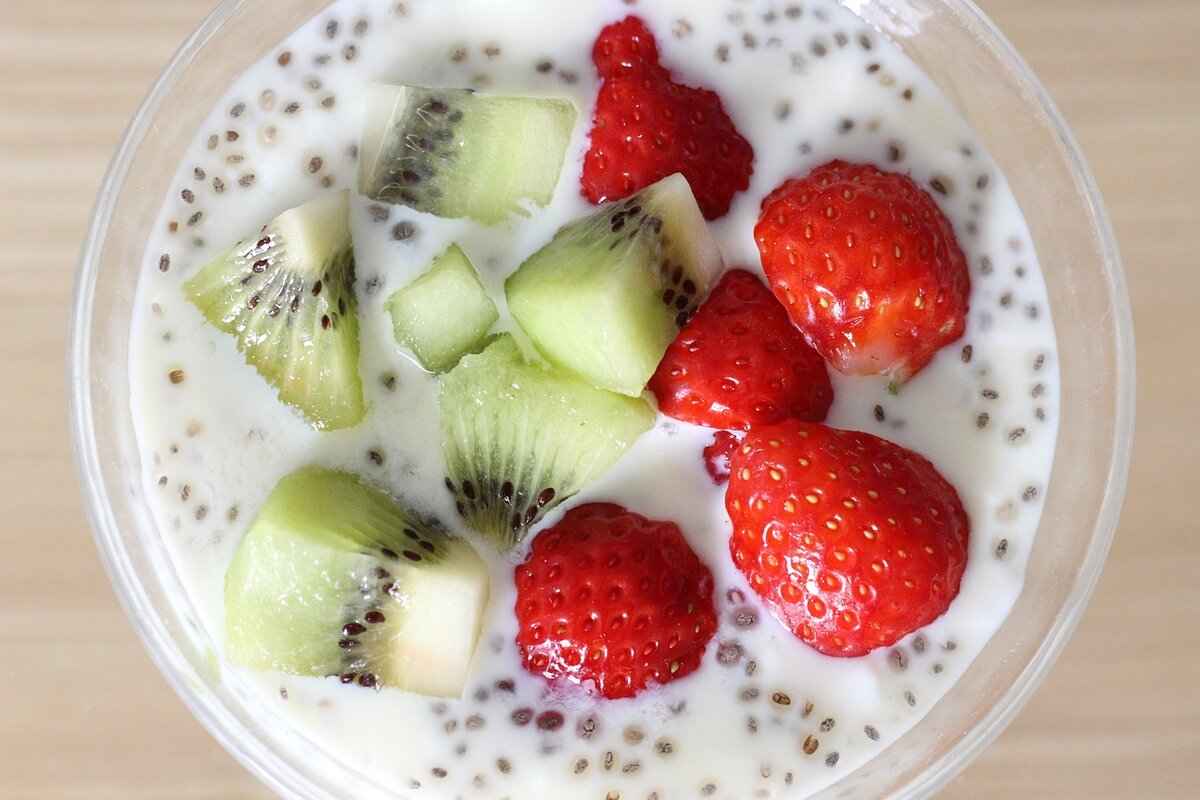
Health Benefits of Chia Seeds
Chia seeds have emerged as a popular superfood, celebrated for their myriad health benefits. These tiny seeds, derived from the Salvia hispanica plant, are packed with essential nutrients that can significantly enhance your overall well-being. In this section, we will delve into the various health benefits associated with chia seeds, exploring their impact on digestion, heart health, weight management, and more.
Chia seeds are an excellent source of fiber, boasting an impressive 34 grams of fiber per 100 grams. This high fiber content is crucial for maintaining healthy digestion. When consumed, chia seeds can absorb up to 12 times their weight in water, forming a gel-like substance that aids in promoting a feeling of fullness, which can be beneficial for those looking to manage their weight.
The soluble fiber in chia seeds acts as a prebiotic, fostering the growth of beneficial gut bacteria. This can lead to improved digestive health and regularity. Additionally, the gel-like consistency formed when chia seeds are hydrated can help to slow down digestion, allowing for better nutrient absorption. This makes chia seeds an ideal addition to your diet if you are seeking to enhance your digestive health.
Chia seeds are rich in omega-3 fatty acids, particularly alpha-linolenic acid (ALA), which is known for its heart-protective properties. These healthy fats contribute to reducing inflammation and improving cholesterol levels. Regular consumption of chia seeds may help lower LDL (bad) cholesterol while increasing HDL (good) cholesterol, ultimately supporting overall cardiovascular health.
Thanks to their high fiber content, chia seeds can help promote weight loss by increasing satiety. When consumed before meals, they can absorb liquid and expand in your stomach, leading to a feeling of fullness that can reduce overall calorie intake. Furthermore, the protein content in chia seeds can help stabilize blood sugar levels, preventing spikes and crashes that often lead to unhealthy snacking.
Chia seeds are also rich in antioxidants, which play a vital role in combating oxidative stress and inflammation in the body. These antioxidants help neutralize free radicals, potentially reducing the risk of chronic diseases such as cancer and heart disease. By incorporating chia seeds into your diet, you can enhance your body’s natural defenses against cellular damage.
- Chia Pudding: Mix chia seeds with your choice of milk or yogurt and let it sit overnight to create a delicious pudding.
- Smoothies: Add a tablespoon of chia seeds to your morning smoothie for an extra nutritional boost.
- Salads: Sprinkle chia seeds on salads for added texture and nutrition.
- Baking: Incorporate chia seeds into baked goods like muffins or bread for enhanced fiber content.
In summary, the health benefits of chia seeds are extensive, making them a valuable addition to any diet. From improving digestion and heart health to supporting weight loss and providing antioxidant protection, these tiny seeds pack a powerful punch. By incorporating chia seeds into various meals, you can enjoy their numerous benefits while enhancing your overall health.
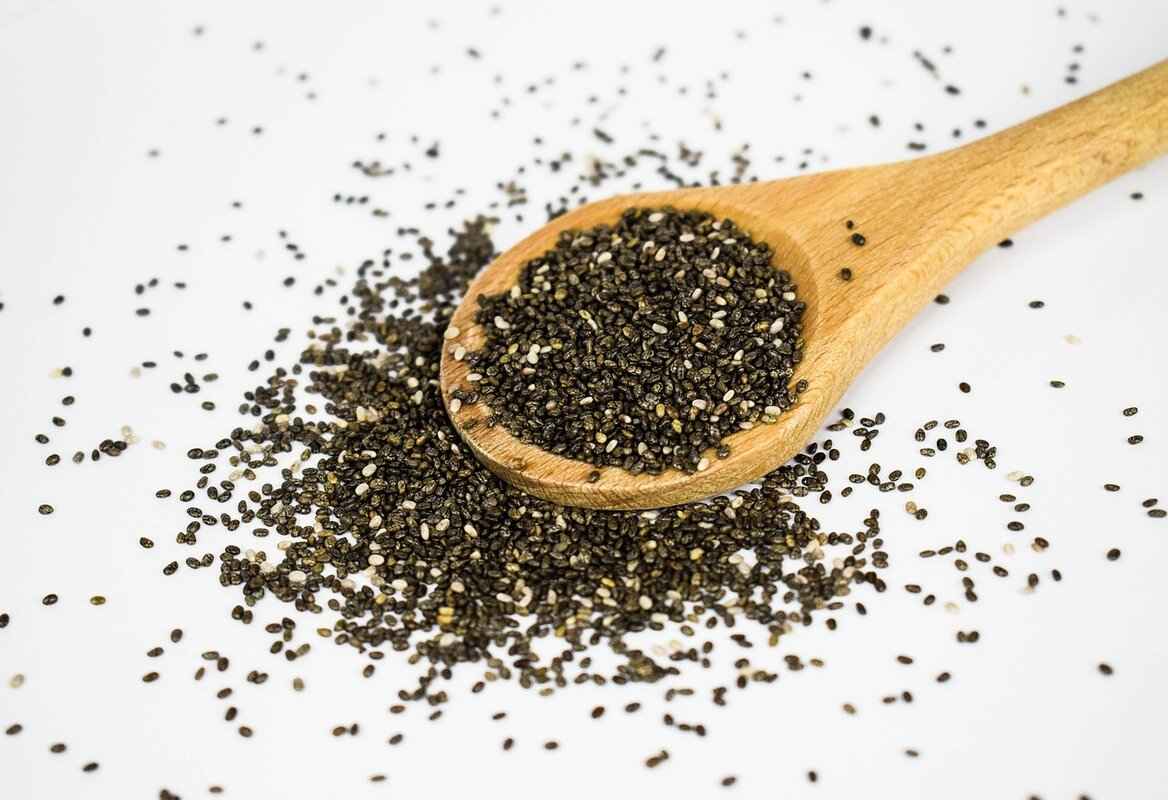
Health Benefits of Flax Seeds
Flax seeds, derived from the flax plant (Linum usitatissimum), are small yet powerful seeds packed with an array of health benefits. They have gained recognition not only for their nutritional profile but also for their potential to enhance overall well-being. In this section, we will delve into the various health benefits of flax seeds, exploring how they can positively impact your health.
Flax seeds are rich in omega-3 fatty acids, particularly alpha-linolenic acid (ALA), which is essential for heart health. These fatty acids help reduce inflammation and lower the risk of chronic diseases. Additionally, flax seeds are an excellent source of dietary fiber, providing both soluble and insoluble fiber that supports digestive health.
Chronic inflammation is linked to numerous health issues, including heart disease and arthritis. Flax seeds contain potent anti-inflammatory properties due to their high omega-3 content. Regular consumption of flax seeds can help mitigate inflammation, promoting a healthier body.
Studies have shown that incorporating flax seeds into your diet can lead to improved cholesterol levels. The soluble fiber in flax seeds helps lower LDL (bad) cholesterol while maintaining or even increasing HDL (good) cholesterol. This balance is crucial for cardiovascular health.
Flax seeds are also known for promoting healthy skin. The omega-3 fatty acids and antioxidants found in flax seeds can help retain skin moisture, reduce dryness, and minimize signs of aging. Additionally, their anti-inflammatory properties can alleviate skin conditions such as acne and eczema.
Including flax seeds in your diet can aid in weight management. Their high fiber content promotes a feeling of fullness, which can help control appetite and reduce overall calorie intake. This makes flax seeds a valuable addition to a weight-loss regimen.
Lignans are phytoestrogens found in flax seeds that offer various health benefits. They have antioxidant properties and may help balance hormone levels. Some studies suggest that lignans can reduce the risk of hormone-related cancers, such as breast and prostate cancer.
- Add ground flax seeds to your smoothies for a nutritious boost.
- Sprinkle flax seeds over salads or yogurt for added texture.
- Use flaxseed meal as a substitute for eggs in baking recipes.
- Incorporate flax seeds into oatmeal or baked goods for extra fiber.
While flax seeds are generally safe for most people, it is important to consume them in moderation. Overconsumption can lead to digestive issues, such as bloating or diarrhea. It is advisable to gradually introduce flax seeds into your diet to allow your body to adjust.
In summary, flax seeds are a versatile and nutritious addition to any diet. Their numerous health benefits, including reducing inflammation, improving cholesterol levels, and promoting healthy skin, make them a valuable food choice. By incorporating flax seeds into your meals, you can enhance your health and well-being.

How to Incorporate Chia Seeds into Your Diet?
Chia seeds are a powerhouse of nutrition and can easily be integrated into a variety of meals and snacks. Their versatility and health benefits make them a popular choice among health enthusiasts. Below are several practical ways to incorporate chia seeds into your diet effectively.
- Smoothies: One of the simplest ways to enjoy chia seeds is by adding them to smoothies. Just a tablespoon can enhance the nutritional profile of your drink. They blend well with fruits, vegetables, and even protein powders.
- Yogurt: Sprinkle chia seeds over your yogurt for added texture and nutrients. They absorb liquid and create a delightful crunch, making your yogurt experience more enjoyable.
- Baked Goods: Incorporate chia seeds into your baking recipes. They can be added to muffins, breads, and pancakes. Not only do they provide a nutritional boost, but they also contribute to moisture and texture.
- Chia Pudding: This is a popular way to enjoy chia seeds. Combine chia seeds with your choice of milk (dairy or plant-based) and let them sit overnight. The seeds will expand and create a pudding-like consistency. You can sweeten it with honey or maple syrup and top it with fruits and nuts.
- Salads: Add a tablespoon of chia seeds to your salads for a nutritious crunch. They can be sprinkled on top or mixed into dressings for added flavor and health benefits.
- Soups and Stews: Stirring chia seeds into soups or stews can thicken the consistency while enriching the dish with omega-3 fatty acids and fiber.
When incorporating chia seeds into your diet, it’s essential to consider a few tips:
- Hydration: Chia seeds absorb a significant amount of liquid. To avoid digestive discomfort, ensure you drink plenty of water when consuming chia seeds.
- Start Small: If you’re new to chia seeds, start with a small amount and gradually increase your intake to allow your digestive system to adjust.
- Storage: Keep chia seeds in a cool, dry place. They have a long shelf life but should be stored away from direct sunlight to maintain their nutritional quality.
Chia seeds are often touted for their potential weight management benefits. Their high fiber content helps promote a feeling of fullness, which can reduce overall calorie intake. Additionally, the gel-like substance they form when mixed with liquid can slow down digestion, keeping you satisfied for longer periods.
Chia seeds are rich in essential nutrients, including:
- Omega-3 Fatty Acids: Beneficial for heart health.
- Protein: A great plant-based protein source.
- Fiber: Aids in digestion and contributes to gut health.
- Antioxidants: Help combat oxidative stress and inflammation.
In summary, chia seeds are a versatile and nutritious addition to your diet. With their numerous culinary applications and health benefits, they can enhance your meals while supporting your overall well-being. Whether you’re making a smoothie, a pudding, or simply sprinkling them on your favorite dishes, incorporating chia seeds can be both easy and delicious.
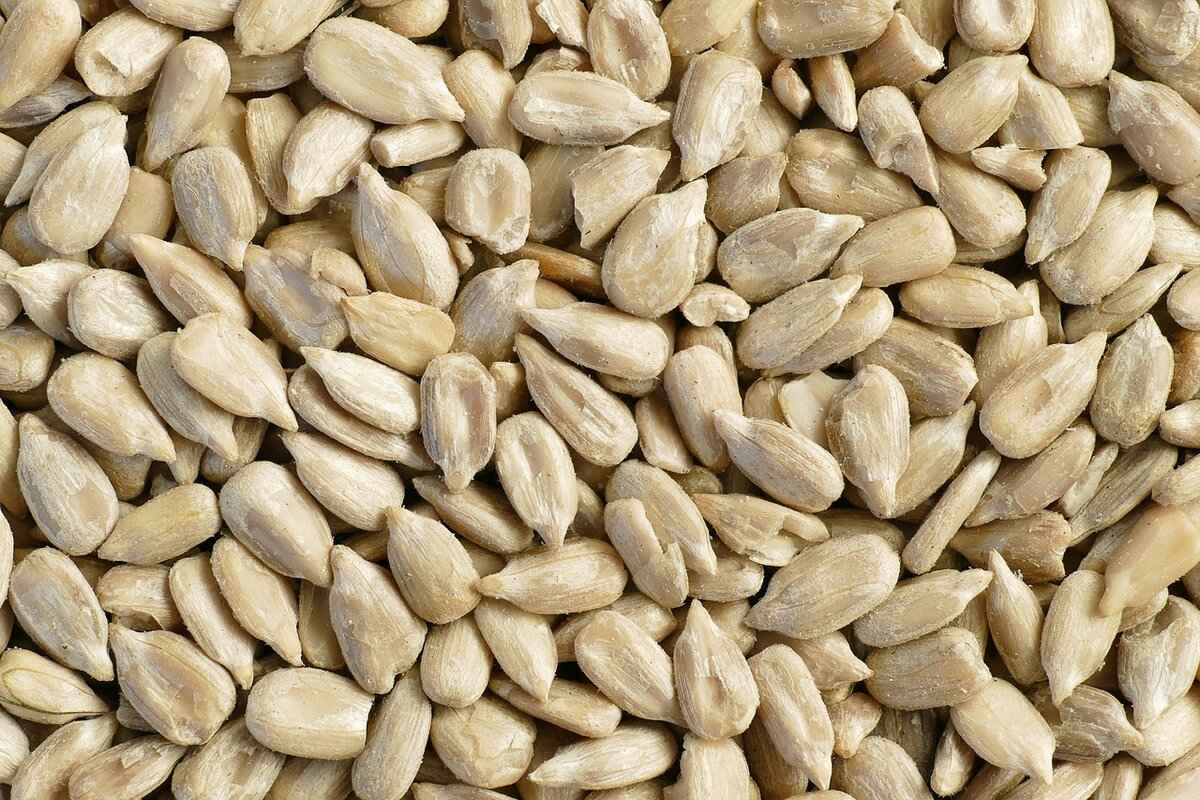
How to Use Flax Seeds Effectively?
Flax seeds are a powerhouse of nutrition, offering a variety of health benefits and culinary uses. To maximize their advantages, it is essential to understand how to use flax seeds effectively. This section delves into different methods of incorporating flax seeds into your diet, ensuring you receive the full spectrum of their health benefits.
Flax seeds are renowned for their rich content of omega-3 fatty acids, particularly alpha-linolenic acid (ALA), which is crucial for heart health. They also contain high levels of dietary fiber, lignans, and various vitamins and minerals. By including flax seeds in your meals, you can support digestion, reduce inflammation, and potentially lower cholesterol levels.
When it comes to consuming flax seeds, the form in which you eat them can significantly affect nutrient absorption. Whole flax seeds can pass through the digestive tract undigested, which means you may not receive all their health benefits. In contrast, ground flax seeds are easier to digest and allow for better absorption of nutrients. Therefore, it is often recommended to grind flax seeds before consumption.
- Smoothies: Add a tablespoon of ground flax seeds to your favorite smoothie for a nutritional boost.
- Oatmeal: Stir ground flax seeds into your morning oatmeal for added fiber and a nutty flavor.
- Baking: Use ground flax seeds as an egg substitute in vegan baking. Mix one tablespoon of ground flax seeds with three tablespoons of water and let it sit for a few minutes until it thickens.
- Salads: Sprinkle whole or ground flax seeds on salads for added crunch and nutrition.
- Yogurt: Mix ground flax seeds into yogurt or cottage cheese for a healthy snack.
Another way to enjoy the benefits of flax seeds is through flax seed oil. This oil is rich in omega-3 fatty acids and can be used in salad dressings or drizzled over cooked vegetables. However, it’s important to note that flax seed oil does not contain the fiber found in whole or ground flax seeds, so it should be used as a supplement rather than a replacement.
Moderation is key when incorporating flax seeds into your diet. A typical recommendation is to consume about 1 to 2 tablespoons of ground flax seeds per day. Starting with a smaller amount and gradually increasing can help mitigate any digestive discomfort.
While flax seeds are generally safe for most people, consuming them in excessive amounts can lead to digestive issues such as bloating or diarrhea. Additionally, those with certain medical conditions or who are pregnant should consult a healthcare professional before making significant changes to their diet. It’s also advisable to drink plenty of water when consuming flax seeds to aid in digestion.
In conclusion, flax seeds are a versatile and nutritious addition to any diet. By understanding how to use them effectively—whether whole, ground, or as oil—you can harness their full potential and enjoy the myriad health benefits they offer.
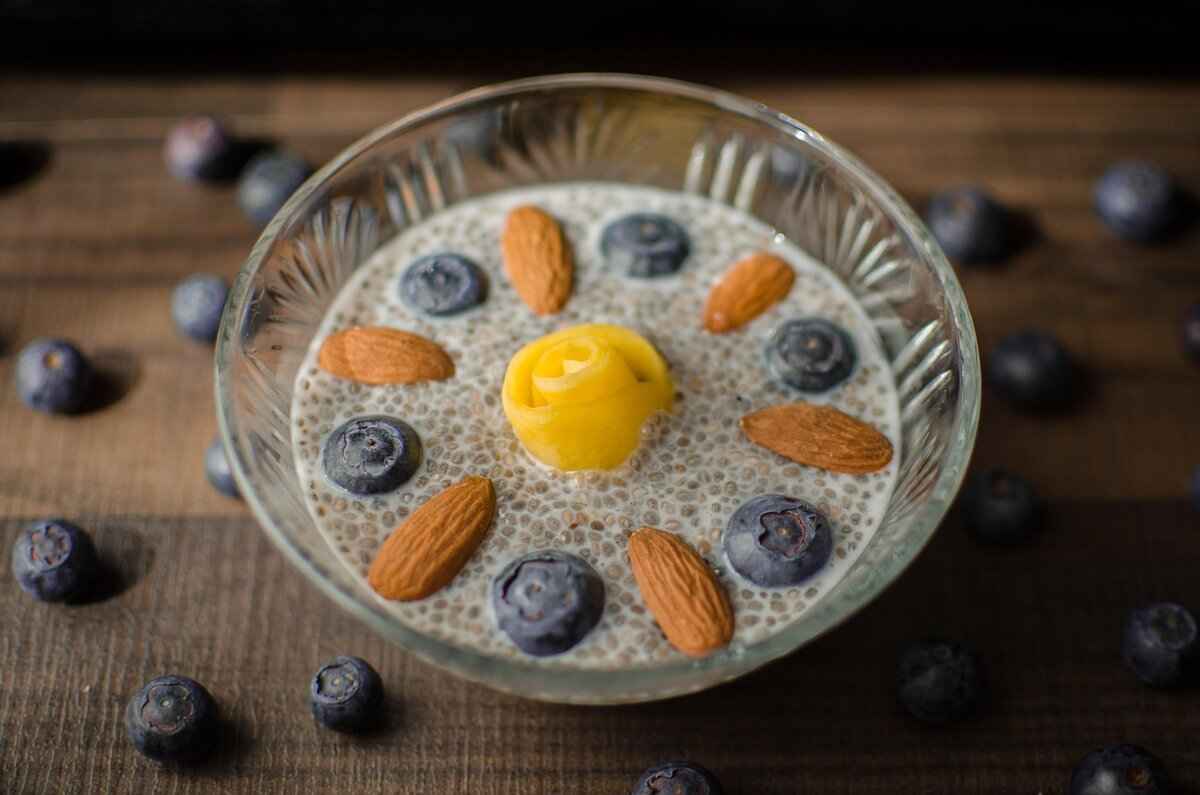
Are There Any Side Effects?
When considering the incorporation of chia seeds and flax seeds into your diet, it’s essential to be aware of potential side effects. While both seeds are generally recognized for their health benefits, they can lead to digestive discomfort in certain individuals, particularly if consumed in excessive amounts.
Understanding Digestive Issues
Both chia and flax seeds are rich in fiber, which is beneficial for digestive health. However, a sudden increase in fiber intake can overwhelm the digestive system. This may result in symptoms such as bloating, gas, or even diarrhea. To mitigate these effects, it is advisable to introduce these seeds gradually into your diet. Start with small amounts, such as a teaspoon, and slowly increase the quantity as your body adjusts.
Hydration is Key
Another critical factor to consider is hydration. Chia seeds, in particular, absorb a significant amount of water—up to 10-12 times their weight. This property can lead to an increase in fiber intake without sufficient fluid, potentially causing constipation. Therefore, it is vital to drink plenty of water when consuming chia seeds to aid digestion and prevent any adverse effects.
Allergic Reactions
Though rare, some individuals may experience allergic reactions to chia or flax seeds. Symptoms can include itching, swelling, or difficulty breathing. If you have a history of allergies to similar seeds or plants, it is prudent to consult with a healthcare provider before incorporating these seeds into your diet.
Interactions with Medications
Both chia and flax seeds may interact with certain medications. For instance, their high omega-3 fatty acid content can have blood-thinning effects, which may amplify the effects of anticoagulant medications. If you are on medication, especially blood thinners, it is crucial to consult with a healthcare professional to ensure there are no potential interactions.
Portion Control
To enjoy the benefits of chia and flax seeds without the side effects, moderation is key. Recommended daily intake varies, but a common guideline suggests about 1-2 tablespoons per day. This amount allows you to reap the health benefits while minimizing the risk of digestive issues.
Conclusion
In summary, while chia and flax seeds can be a nutritious addition to your diet, it is important to be mindful of potential side effects. Gradually introducing these seeds, ensuring adequate hydration, and being aware of any allergies or medication interactions can help you enjoy their benefits safely. By following these guidelines, you can make informed choices that enhance your overall health.
Frequently Asked Questions
- Can I use chia seeds and flax seeds together?
Absolutely! Mixing chia and flax seeds can give you the best of both worlds. You’ll enjoy a boost in omega-3 fatty acids, fiber, and a variety of nutrients that support your overall health.
- How should I store chia and flax seeds?
For optimal freshness, store both chia and flax seeds in an airtight container in a cool, dark place. If you’ve ground flax seeds, it’s best to keep them in the fridge to prevent them from going rancid.
- How much chia or flax seeds should I eat daily?
Generally, a tablespoon or two of either seed per day is a good starting point. However, listen to your body and adjust according to your digestive comfort and health goals.
- Are there any allergens associated with chia or flax seeds?
Both seeds are considered safe for most people, but if you have a history of allergies to other seeds, it’s wise to consult with a healthcare provider before adding them to your diet.
- Can I use chia seeds as an egg substitute in baking?
Yes! Chia seeds can be mixed with water to create a gel-like substance that works well as an egg substitute in vegan recipes. Just combine 1 tablespoon of chia seeds with 2.5 tablespoons of water and let it sit for about 15 minutes.

